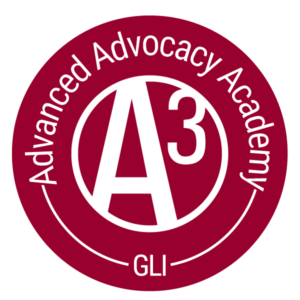
Millennials and Generation X Face Higher Risk of Liver Cancer Than Previous Generations
Thank you for being a part of Liver Cancer News! As we gear up for Liver Cancer Awareness Month next month, we are thrilled to announce the launch of a comprehensive patient toolkit designed to support our community throughout their cancer journey. Global Liver Institute’s #OctoberIs4Livers campaign aims to provide resources with the latest information around the globe, engaging discussions with experts at the forefront of liver cancer-related disparities in different communities such as rural, U.S. Veterans, and the Native American community, as well as make strides for those who are affected by liver cancer. Stay informed about upcoming events through GLI’s website!
Health Care Bias, Cost of Care Biggest Barriers to Liver Care for LGBTQI+ Patients
Bias in health care can deeply affect marginalized communities, particularly those within the LGBTQI+ group. In her interview with AJMC, Sarah Manes, the Liver Cancers Program Director at Global Liver Institute (GLI), explores how both conscious and unconscious biases between health care providers and patients can erode trust, impede communication, and ultimately undermine the quality of care.
Liver Cancer Prevention Study
New clinical study alert! If you or someone you know has nonalcoholic fatty liver disease (NAFLD) with advanced fibrosis, this study could be of interest. The study’s primary goal is to explore the effectiveness of lisinopril in preventing NAFLD progression. For more details, please scan the barcode on the image or visit nucancerprevention.org.
Millennials and Gen X-ers Face Higher Risk of 17 Cancers Than Previous Generations, Study Suggests
A study led by the American Cancer Society reveals that Generation X and Millennials face a significantly higher risk of developing 17 types of cancer compared to older generations. This trend includes a rise in cancers such as breast, pancreatic, colorectal, and liver cancer. The study found that cancer incidence has increased with each successive generation born since 1920, with those born in the 1990s experiencing two to three times higher rates of several cancers compared to those born in the 1950s. This shift suggests generational changes in exposure to risk factors and indicates a future liver cancer burden without effective preventive intervention.
Immunotherapy Prior to Surgery May Improve Outcomes for High-Risk Liver Cancer Patients
A retrospective study from Johns Hopkins researchers suggests that neoadjuvant (delivered before surgery) immunotherapy could allow high-risk hepatocellular carcinoma (HCC) patients to undergo margin-negative resection (surgical removal of a tumor with no cancer cells detected on the edges of the removed piece). The study, published in Cancer Research Communications, found that these patients can achieve similar positive long-term outcomes to those who meet standard criteria for resection, in essence allowing for a developed tumor to be treated as if it were earlier-stage. Further prospective studies are needed to evaluate the benefits of and appropriate parameters for neoadjuvant therapy for HCC.
Clinical Practice Guidelines for Hepatocellular Carcinoma Surveillance for People at High Risk in Australia
The National Health and Medical Research Council (NHMRC) has approved new clinical practice guidelines for (HCC) surveillance in high-risk individuals across Australia. These guidelines offer key recommendations for detecting lesions and early-stage tumors, with the goal of increasing access to curative treatments and improving overall survival rates. Developed by leading clinicians and a multidisciplinary working group — including healthcare professionals, clinical experts, and community representatives — these guidelines reflect a comprehensive approach to enhancing outcomes for those at risk of liver cancer.
Novel DNA-Targeting Therapeutic Screening Technique
Southwest Research Institute (SwRI) has developed an advanced tool called Rhodium™ to screen DNA-targeting therapeutics for cancer and other diseases. This innovative platform combines 3D drug screening software with machine learning techniques to predict DNA binding affinity and assess cancer cell toxicity for various drug candidates. The tool has already demonstrated success in identifying potent therapeutics for infectious diseases like COVID-19 and hemorrhagic fevers, as well as antidotes for chemical nerve agents. The technology may improve the development of liver cancer therapeutics by assessing hundreds of compounds beforehand to improve selection for bench and in vivo studies.
Upcoming Events:

Upcoming GLI events:
- September 13-16, 2024: GLI’s Advanced Advocacy Academy (A3)
- October 2024: #OctoberIs4Livers
Other events:
- September 8, 2024: Lights of Hope Across America
- September 9, 2024: Hepatobiliary Online Support Group
- September 21, 2024: Young Adult Cancer Support Group [In person]
- September 26, 2024: Medicare 101 Webinar
- October 25th & 26, 2024: Triage Cancer Conference [Online]
For more information about the Liver Cancers Council or to learn more about joining, please visit https://globalliver.org/liver-cancers-council/ or email cancer@globalliver.org




